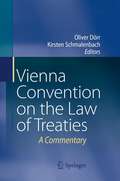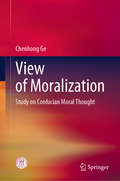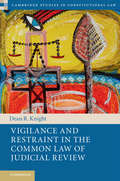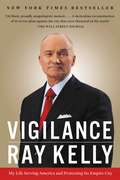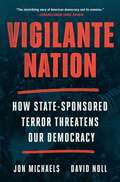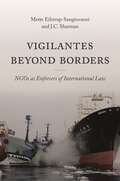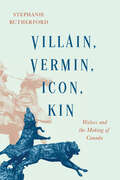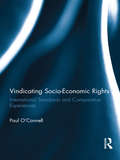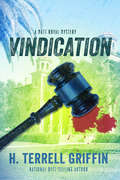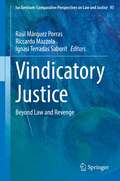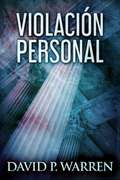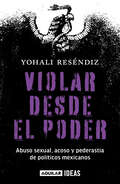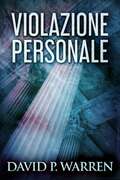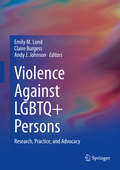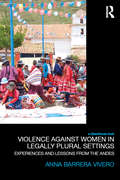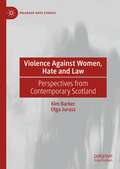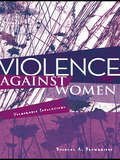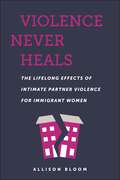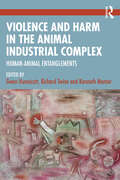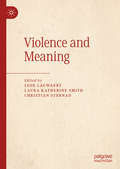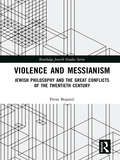- Table View
- List View
Vienna Convention on the Law of Treaties
by Oliver Dörr Kirsten SchmalenbachThe Commentary on the Vienna Convention on the Law of Treaties provides an in-depth article-by-article analysis of all provisions of the Vienna Convention. The texts are uniformly structured: (I) Purpose and Function of the Article, (II) Historical Background and Negotiating History, and (III) Elements of the Article. The Vienna Convention on Treaties between States and IOs and between IOs is taken into account where appropriate. In sum, the present Commentary contains a comprehensive legal analysis of all aspects of the international law of treaties. Where the law of treaties reaches into other fields of international law, e.g. the law of state responsibility, the relevant interfaces are discussed and contextualized. With its focus on international practice, the Commentary is addressed to academia, as well as to practitioners of international law.
View of Moralization: Study on Confucian Moral Thought
by Chenhong GeThis book summarizes the author’s extensive research on Confucian morality issues and focuses on elaborating the extremely important and unique role of moral thought in Confucian ideology. The book shares the author’s own standpoints on a range of issues – including where moral thoughts originated, what the major principles are, and what methods were adopted in Confucianism – to form a comprehensive and in-depth interpretation, and help readers achieve a better understanding.Moreover, the book focuses on the similarities and differences between Chinese and western cultures and presents an in-depth analysis of the differences and roots regarding various aspects, including Chinese and western historical development paths, thoughts and cultures, national spirits, national mentalities, and social governance models. The formation of either culture has its own practical reasons and historical roots. The book represents a major contribution, helping readers understand the similarities and differences between Chinese and western cultures and social civilizations, enabling them to integrate and learn from Chinese and western cultures, and promoting a better development for Chinese society and the international community alike. Combining detailed data and an approachable style, it contributes to the legacy of Confucianism by applying a critical attitude. The author thinks out of the box in terms of theoretical analysis and studies on certain issues. As such, the book will be of great academic value in terms of studying China’s ideological culture, especially its morality culture, and will benefit scholars and research institutions alike.
Vigilance and Restraint in the Common Law of Judicial Review (Cambridge Studies In Constitutional Law #19)
by Dean R. KnightThe mediation of the balance between vigilance and restraint is a fundamental feature of judicial review of administrative action in the Anglo-Commonwealth. This balance is realised through the modulation of the depth of scrutiny when reviewing the decisions of ministers, public bodies and officials. While variability is ubiquitous, it takes different shapes and forms. <P><P>Dean R. Knight explores the main shapes and forms employed in judicial review in England, Canada, Australia and New Zealand over the last fifty years. Four schemata are drawn from the case law and taken back to conceptual foundations, exposing their commonality and differences, and each approach is evaluated. This detailed methodology provides a sound basis for decisions and debates about how variability should be brought to individual cases and will be of great value to legal scholars, judges and practitioners interested in judicial review.<P> Proposes four distinctive models of variability in judicial review.<P> Provides a method of testing the strengths and weaknesses of different styles of legal reasoning.<P> Explains changes in the complex world of judicial review doctrine.
Vigilance: My Life Serving America and Protecting Its Empire City
by Ray KellyTwo-time New York City police commissioner Ray Kelly opens up about his remarkable life, taking us inside fifty years of law enforcement leadership, offering chilling stories of terrorist plots after 9/11, and sharing his candid insights into the challenges and controversies cops face today. The son of a milkman and a Macy's dressing room checker, Ray Kelly grew up on New York City's Upper West Side, a middle-class neighborhood where Irish and Puerto Rican kids played stickball and tussled in the streets. He entered the police academy and served as a marine in Vietnam, living and fighting by the values that would carry him through a half century of leadership-justice, decisiveness, integrity, courage, and loyalty. Kelly soared through the NYPD ranks in decades marked by poverty, drugs, civil unrest, and a murder rate that, at its peak, spiked to over two thousand per year. Kelly came to be known as a tough leader, a fixer who could go into a troubled precinct and clean it up. That reputation catapulted him into his first stint as commissioner, under Mayor David Dinkins, where Kelly oversaw the police response to the 1993 World Trade Center bombing and spearheaded programs that would help usher in the city's historic drop in crime. Eight years later, in the chaotic wake of the 9/11 attacks, newly elected mayor Michael Bloomberg tapped Kelly to be NYC's top cop once again. After a decade working with Interpol, serving as undersecretary of the Treasury for enforcement, overseeing U.S. Customs, and commanding an international police force in Haiti, Kelly understood that New York's security was synonymous with our national security. Believing that the city could not afford to rely solely on "the feds," he succeeded in transforming the NYPD from a traditional police department into a resource-rich counterterrorism-and-intelligence force. In this vital memoir, Kelly reveals the inside stories of his life in the hot seat of "the capital of the world"-from the terror plots that nearly brought a city to its knees to his dealings with politicians, including Presidents Bill Clinton, George W. Bush, and Barack Obama as well as Mayors Rudolph Giuliani, Bloomberg, and Bill DeBlasio. He addresses criticisms and controversies like the so-called stop-question-and-frisk program and the rebuilding of the World Trade Center and offers his insights into the challenges that have recently consumed our nation's police forces, even as the need for vigilance remains as acute as ever.
Vigilante Nation: How State-Sponsored Terror Threatens Our Democracy
by Jon Michaels David NollFor readers of How Democracies Die, two legal scholars expose the MAGA Republican strategy to roll back civil, political, and privacy rights and subvert American democracy—and prescribe a plan for beating the Christian nationalists at their own game.Time and again, when confronted with serious challenges to their power and privilege, white Christian nationalists seek solace—and satisfaction—in state-supported forms of vigilantism. This was true at the dawn of the American republic, when Northern abolitionists threatened the Southern slavocracy. It was also true in the aftermath of the Civil War, when emancipated Black Americans and their Northern allies sought to fulfill the promises of Reconstruction. And though this pattern was seemingly broken after the Civil Rights revolution of the 1950s and &’60s—and abandoned once and for all—legal vigilantism has made a surprising, roaring comeback in the months and years following the failed coup of January 6, 2021. Committed to never again losing power, let alone experiencing the humiliation that followed on the heels of the ham-fisted insurrection, overlapping networks of right-wing lawyers, politicians, plutocrats, and preachers have resurrected state-supported vigilantism. Vigilante Nation tells this story of the American Right marginalizing, subordinating, and disenfranchising the increasingly diverse and cosmopolitan members of the American polity. This book exposes the vigilantes&’ plans, explains their methods—everything from book bans to anti-abortion bounties to attacks on government proceedings, including elections—and underscores the stakes. Now that supporters of democratic equality are numerous and dexterous enough to finally secure the broad promises of the civil rights revolution, the race is on for Donald Trump, J.D. Vance, and the architects of Project 2025 to subvert our democracy before a countermovement can rise up to thwart their insidious plans.
Vigilantes beyond Borders: NGOs as Enforcers of International Law
by J C Sharman Mette Eilstrup-SangiovanniHow and why NGOs are increasingly taking independent and direct action in global law enforcement, from human rights to the environment Nongovernmental organizations (NGOs) have generally served as advocates and service providers, leaving enforcement to states. Now, NGOs are increasingly acting as private police, prosecutors, and intelligence agencies in enforcing international law. NGOs today can be found investigating and gathering evidence; suing and prosecuting governments, companies, and individuals; and even catching lawbreakers red-handed. Examining this trend, Vigilantes beyond Borders considers why some transnational groups have opted to become enforcers of international law regarding such issues as human rights, the environment, and corruption, while others have not.Three factors explain the rise of vigilante enforcement: demand, supply, and competition. Governments commit to more international laws, but do a poor job of policing them, leaving a gap and creating demand. Legal and technological changes make it easier for nonstate actors to supply enforcement, as in the instances of NGOs that have standing to use domestic and international courts, or smaller NGOs that employ satellite imagery, big data analysis, and forensic computing. As the growing number of NGOs vie for limited funding and media attention, smaller, more marginal, groups often adopt radical strategies like enforcement.Looking at the workings of major organizations, including Amnesty International, Greenpeace, and Transparency International, as well as smaller players, such as Global Witness, the Sea Shepherd Conservation Society, and Bellingcat, Vigilantes beyond Borders explores the causes and consequences of a novel, provocative approach to global governance.
Villain, Vermin, Icon, Kin: Wolves and the Making of Canada
by Stephanie RutherfordA wolf’s howl is felt in the body. Frightening and compelling, incomprehensible or entirely knowable, it is a sound that may be heard as threat or invitation but leaves no listener unaffected.Toothsome fiends, interfering pests, or creatures wild and free, wolves have been at the heart of Canada’s national story since long before Confederation. Villain, Vermin, Icon, Kin contends that the role in which wolves have been cast – monster or hero – has changed dramatically through time. Exploring the social history of wolves in Canada, Stephanie Rutherford weaves an innovative tapestry from the varied threads of historical and contemporary texts, ideas, and practices in human-wolf relations, from provincial bounties to Farley Mowat’s iconic Never Cry Wolf. These examples reveal that Canada was made, in part, through relationships with nonhuman animals. Wolves have always captured the human imagination. In sketching out the connections people have had with wolves at different times, Villain, Vermin, Icon, Kin offers a model for more ethical ways of interacting with animals in the face of a global biodiversity crisis.
Vindicating Socio-Economic Rights: International Standards and Comparative Experiences (Routledge Research in Human Rights Law)
by Paul O'ConnellNotwithstanding the widespread and persistent affirmation of the indivisibility and equal worth of all human rights, socio-economic rights continue to be treated as the "Cinderella" of the human rights corpus. At a domestic level this has resulted in little appetite for the explicit recognition and judicial enforcement of such rights in constitutional democracies. The primary reason for this is the prevalent apprehension that the judicial enforcement of socio-economic rights is fundamentally at variance with the doctrine of the separation of powers. This study, drawing on comparative experiences in a number of jurisdictions which have addressed (in some cases more explicitly than others) the issue of socio-economic rights, seeks to counter this argument by showing that courts can play a substantial role in the vindication of socio-economic rights, while still respecting the relative institutional prerogatives of the elected branches of government. Drawing lessons from experiences in South Africa, India, Canada and Ireland, this study seeks to articulate a "model adjudicative framework" for the protection of socio-economic rights. In this context the overarching concern is to find some role for the courts in vindicating socio-economic rights, while also recognising the importance of the separation of powers and the primary role that the elected branches of government must play in protecting and vindicating such rights. The text incorporates discussion of the likely impact and significance of the Optional Protocol to the International Covenant on Economic, Social and Cultural Rights, and looks at the implications of the Mazibuko decision for the development of South Africa’s socio-economic rights jurisprudence.
Vindication (A Matt Royal Mystery #11)
by H. Terrell GriffinPremier adult community with everything you could possibly want, need, or dream of doing in your retirement years is just a golf cart ride away—now the scene of a murderIn this John Grisham style mystery, Matt Royal, the retired lawyer-turned-beach-bum is called back into the courtroom to defend his girlfriend J. D. Duncan's Aunt Esther, who lives in the sprawling North Central Florida retirement community of The Villages. A best-selling author has been murdered after a book signing, and Aunt Esther has been arrested. Matt has a history with the local sheriff—one which may not bode well for his client. Matt reluctantly suits up for the courtroom, and J.D. takes a leave from the police department to go undercover. A bizarre specter from the past haunts their investigation every step of the way. As they delve further into the case, the pieces of the puzzle refuse to fall into any kind of coherent pattern. Jock Algren arrives with his special skill set to expose the real murderer and free Aunt Esther, but to no avail. Not until the case goes to trial and the evidence is revealed does the truth emerge—and a strange kind of justice prevails.
Vindicatory Justice: Beyond Law and Revenge (Ius Gentium: Comparative Perspectives on Law and Justice #93)
by Raúl Márquez Porras Riccardo Mazzola Ignasi Terradas SaboritThis volume offers a new theoretical approach to the analysis of the law/revenge binary, and attempts to dismantle the common idea of revenge as lacking any legal, moral or rational dimension. In contrast, the book puts forward a model of a complex system of justice—which it terms 'vindicatory'—wherein vendetta constitutes an authorized action, the core of which does not (just) lie in vengeance but also in settlement procedures for peace—or 'composition.' The first part of the book ("Vindicatory Justice: Conceptual Analyses and Forerunners") seeks to identify the nature of vindicatory justice and to shed light on the structure of so-called vindicatory systems. In turn, the second part ("Mapping Vindicatory Justice") illustrates, using examples gathered from a range of sociolegal contexts, the dynamic relationship between composition and authorized revenge in vindicatory systems. Taken as a whole, the volume shows that applying a longue durée historical perspective to the study of revenge systems allows us to clearly recognize composition and authorized revenge as features of the same legal system, even though one of them may seem predominant (or more eye-catching) than the other in certain cultural settings.
Violación Personal
by David P. WarrenCuando una ejecutiva es acosada y agredida por el director general de su compañía, y posteriormente despedida, un abogado tenaz estará determinado a hacer justicia. La ejecutiva Sarah Willis, decide buscar representación legal en el abogado Scott Winslow, luego de verse profundamente afectada y enfrentando el impacto psicológico de un ataque sexual violento durante un viaje de negocios. Inmediatamente después, Sarah será despedida debido a su presunto bajo rendimiento. Para armar su caso, Winslow deberá encontrar la manera de establecer evidencia concreta a pesar de las perspectivas enfrentadas. El segundo libro en la serie Los misterios judiciales de Scott Winslow, Violación personal es una historia ficticia dentro una realidad aterradora que refleja las lesiones substanciales causadas por la violación; los desafíos mentales y emocionales de buscar justicia; y deja entrever lo que sucede dentro del sistema judicial. Con el apoyo Lee Henry, un investigador, ex-agente de la CIA, para nada ortodoxo, Winslow sale en búsqueda de cada rastro de evidencia. Pero, ¿serán capaces de conectar todas las piezas y cerrar el caso?
Violar desde el poder: Abuso Sexual, acoso y pederastia de politicos mexicanos
by Yohali ReséndizLa verdad trágica que produce rabia e indignación sobre algunos servidores públicos, magistrados, senadores o diputados, encargados de construir un México mejor, denunciados por cometer delitos sexuales. Violar desde el poder es una investigación que revela los abusos sexuales de políticos siniestros como Félix Salgado Macedonio, Benjamín Saúl Huerta, Juan Bustos, Manuel Horacio Cavazos, José Elías Medel Galindo, Juan Antonio Vera Carrizal, Cuauhtémoc Gutiérrez de la Torre y más, encubiertos por otros funcionarios, cómplices que desde sus cargos públicos se burlan del dolor mortal de las víctimas. Yohali Reséndiz entrevista a los múltiples afectados y revela las horrendas secuelas que estos actos de salvajismo y desvergüenza dejaron en mujeres, muchachos de 15 o 16 años y niñas violadas por sus propios familiares. La periodista remueve las aguas negras de la impunidad y da rostro a esos seres indefensos atacados con crueldad para sembrar en sus vidas traumas, dolor físico y emocional, impotencia y miedo. En estas páginas sin precedentes, el lector encontrará motivos para reflexionar y denunciar estos delitos que cometen funcionarios del gobierno que prometen una vida mejor, pero que actúan como depredadores amparados en el poder político. El libro se completa con una guía para denunciar ante ministerios públicos delitos de violación y abuso sexual. Hoy más que nunca México debe expresar surechazo a los feminicidios, a la violencia sexual y al abuso sexual infantil, este libro es una potente iniciativa para ello. abuso sexual ;acoso ;violacion ;abuso sexual infantil ;delitos sexuales ;pornografia ;pederastas ;impunidad ;denuncia ;violencia contra la mujer ;equidad de genero ;inclusion ;maltrato infantil ;feminicida ;delito ;impunidad ;víctimas de delitos sexuales;corrupcion ;trata de personas;trata de blancas;feminicidios;muertas de juares;escandalos sexuales;verdad mexicana;gobierno mexicano;narco gobierno;mexico feminicida;se va a caer;[Críticas/Reseñas]
Violazione Personale
by David P. WarrenQuando una dirigente viene molestata e aggredita dall’amministratore delegato dell’azienda – e poi persino licenziata – un tenace avvocato è determinato a fare giustizia. Profondamente turbata e costretta ad affrontare l’impatto psicologico dello stupro subito durante una trasferta di lavoro, Sarah si rivolge all’avvocato Scott Winslow affinché la rappresenti dopo aver denunciato l’accaduto ed essere stata immediatamente licenziata a causa del presunto scarso rendimento lavorativo. Durante la preparazione della causa, Winslow deve riuscire a raccogliere prove concrete sufficienti a sostenere l’accusa della sua cliente. Il secondo libro della serie Scott Winslow Legal Mysteries - Violazione Personale - è il racconto romanzato di un orrore che spesso accade nel mondo reale. Descrive l’indelebile ferita causata dallo stupro e le difficoltà emotive e psicologiche legate al tentativo di fare giustizia, dando al contempo al lettore un’infarinatura sul sistema legale statunitense. Grazie alla collaborazione con Lee Henry - il poco ortodosso ex-agente della CIA, ora trasformatosi in investigatore privato - Winslow si lancia a capofitto a caccia di prove. Riuscirà a trovarle e chiudere il caso?
Violence Against LGBTQ+ Persons: Research, Practice, and Advocacy
by Andy J. Johnson Emily M. Lund Claire BurgessAs violence against LGBTQ+ persons continues to be a pervasive and serious problem, this book aims to inform mental health providers about the unique needs of LGBTQ+ survivors of interpersonal and structural violence. Individual chapters analyze unique aspects of violence against specific subpopulations of LGBTQ+ persons in order to avoid ineffective and sometimes simplistic one-size-fits-all treatment strategies. Among the topics covered: Macro Level Advocacy for Mental Health Professionals: Promoting Social Justice for LGBTQ+ Survivors of Interpersonal Violence Intimate Partner Violence in Women’s Same-Sex Relationships Violence Against Asexual PersonsInvisibility and Trauma in the Intersex CommunitySexual and Gender Minority Refugees and Asylum Seekers: An Arduous JourneySexual and Gender Minority Marginalization in Military ContextsNavigating Potentially Traumatic Conservative Religious Environments as a Sexual/Gender Minority Violence Against LGBTQ+ Persons prepares mental health professionals for addressing internalized forms of prejudice and oppression that exacerbate the trauma of the survivor, in order to facilitate healing, empowerment, healthy relationships, and resilience at the intersection of sexual orientation, gender identity, gender expression, and diverse social locations. This is a valuable reference for psychologists, social workers, counselors, nurses, mental health professionals, and graduate students, regardless of whether they are preparing for general practice, treatment of LGBTQ+ clients, or treatment of survivors and perpetrators of various forms of violence.
Violence Against Women and Criminal Justice in Africa: Legislation, Limitations and Culture (Sustainable Development Goals Series)
by Ashwanee Budoo-Scholtz Emma Charlene LubaaleThis book examines violence against women in Africa and criminal justice from the perspective of African scholars, practitioners and experts. As a global and long-standing issue, violence against women is gaining public visibility across the African continent with some states announcing a national crisis warranting immediate redress. At the global level, the elimination of all forms of violence against all women and girls forms a key part of United Nations Sustainable Development Goal 5: Gender Equality. Split across two volumes, these books present a comprehensive analysis of the latest research and theories, principles and practices of criminal justice systems, criminal justice accountability mechanisms, and the key challenges women face in their quest for justice on the African continent. Volume I focusses on legislation and its impact, the limitations of criminal justice responses, and the cultural and social norms regarding access to justice. Volume II examines sexual violence and vulnerable women’s access to justice in Africa. They adopt a comparative approach that highlight gaps and good practices to provide a rich source of authoritative information for promoting an intra-African dialogue and cross-fertilization of ideas across the different criminal justice traditions in Africa. Both volumes seek to advance discussions on eliminating violence against women in Africa and speak to those interested in criminal justice, violence, gender studies and African legal studies.
Violence Against Women and Criminal Justice in Africa: Sexual Violence and Vulnerability (Sustainable Development Goals Series)
by Ashwanee Budoo-Scholtz Emma Charlene LubaaleThis book examines violence against women in Africa and criminal justice from the perspective of African scholars, practitioners and experts. As a global and long-standing issue, violence against women is gaining public visibility across the African continent with some states announcing a national crisis warranting immediate redress. At the global level, the elimination of all forms of violence against all women and girls forms a key part of United Nations Sustainable Development Goal 5: Gender Equality. Split across two volumes, these books present a comprehensive analysis of the latest research and theories, principles and practices of criminal justice systems, criminal justice accountability mechanisms, and the key challenges women face in their quest for justice on the African continent. This volume (II) focusses on sexual violence and vulnerable women’s access to justice in Africa. Volume I focusses on legislation and its impact, the limitations of criminal justice responses, and the cultural and social norms regarding access to justice. Together, they adopt a comparative approach that highlight gaps and good practices to provide a rich source of authoritative information for promoting an intra-African dialogue and cross-fertilization of ideas across the different criminal justice traditions in Africa. Both volumes seek to advance discussions on eliminating violence against women in Africa and speak to those interested in criminal justice, violence, gender studies and African legal studies.
Violence Against Women in Legally Plural settings: Experiences and Lessons from the Andes (Law, Development and Globalization)
by Anna BarreraThis book addresses a growing area of concern for scholars and development practitioners: discriminatory gender norms in legally plural settings. Focusing specifically on indigenous women, this book analyses how they, often in alliance with supporters and allies, have sought to improve their access to justice. Development practitioners working in the field of access to justice have tended to conceive indigenous legal systems as either inherently incompatible with women's rights or, alternatively, they have emphasised customary law's advantageous features, such as its greater accessibility, familiarity and effectiveness. Against this background - and based on a comparison of six thus far underexplored initiatives of legal and institutional change in Ecuador, Peru, and Bolivia - Anna Barrera Vivero provides a more nuanced, ethnographic, understanding of how women navigate through context-specific constellations of interlegality in their search for justice. In so doing, moreover, her account of ongoing political debates and local struggles for gender justice grounds the elaboration of a comprehensive conceptual framework for understanding the legally plural dynamics involved in the contestation of discriminatory gender norms.
Violence Against Women, Hate and Law: Perspectives from Contemporary Scotland (Palgrave Hate Studies)
by Kim Barker Olga JuraszThis book presents the first academic study offering a holistic assessment of violence against women (VAW) in Scotland, both online and offline. In particular, it focuses on VAW, hate crime, and online forms of violence against women (OVAW). It critically assesses the gaps in the hate crime protections in Scots Law, focusing specifically on the absence of legal protections for VAW, OVAW, hate crime, and gender-based violence, and it includes international comparisons throughout. Given the current upsurge in the abuse of women, this book offers a holistic assessment of the phenomenon of VAW and makes the case for pressing law reform in Scotland, specifically for legal protections against VAW and OVAW to be included within Scots Law. The book contains not only research findings but also makes practical recommendations for law and policy reform in the areas of hate crime, VAW and OVAW. As such, it contributes to Scotland’s progressive and leading approach to tackling violence against women and girls.
Violence Against Women: Vulnerable Populations
by Douglas A. BrownridgeViolence Against Women: Vulnerable Populations investigates under-researched and underserved groups of women who are particularly vulnerable to violent victimization from an intimate male partner. In the past, there has been an understandable reluctance to address this issue to avoid stereotyping vulnerable groups of women. However, developments in the field, particularly intersectionality theory, which recognizes women’s diversity in experiences of violence, suggest that the time has come to make the study of violence in vulnerable populations a new sub-field in the area. As the first book of its kind, Violence Against Women: Vulnerable Populations identifies where violence on vulnerable populations fits within the field, develops a method for studying vulnerable populations, and brings vital new knowledge to the field through the analysis of original data (from three large-scale representative surveys) on eight populations of women who are particularly vulnerable to violence.
Violence All Around
by John SiftonA human rights lawyer travels to hot zones around the globe before and after 9/11 to document abuses by warlords, terrorists, and counterterrorism forces. John Sifton reminds us that human rights advocates can only shame the world into better behavior; to invoke rights is to invoke the force to uphold them, including the very violence they deplore.
Violence Never Heals: The Lifelong Effects of Intimate Partner Violence for Immigrant Women (Anthropologies of American Medicine: Culture, Power, and Practice)
by Allison BloomExplores experiences with disability and aging for immigrant survivors of domestic violence across thelife courseAcross the United States, one in three women experiences violence in their intimate relationships. More resources are now being devoted to providing these women with immediate care; but what happens to survivors, especially those from marginalized communities, as they grow older and grapple with the long-term effects? In Violence Never Heals, Allison Bloom presents a life-course perspective on the disabling experience of violence in Latina immigrant communities.Drawing on extensive ethnographic fieldwork performed in a Latina program at an Intimate Partner Violence (IPV) crisis center, Bloom offers insights into the long-term effects of systemic and gender-based violence, revealing that these experiences become subtly disabling long before old age. Drawing from her own background as a practitioner, Bloom further details how current IPV services fail to acknowledge and accommodate such effects, in large part because of their disproportionate focus on younger survivors and the particular development of the domestic violence services field. She offers both scholars and practitioners concrete strategies for how they can alter their approaches to better treat and mitigate the lifelong effects of domestic violence. Violence Never Heals addresses a glaring omission in IPV scholarship, providing both an aging-focused perspective on IPV as well as laying out concrete steps for how to implement this perspective in pursuit of more comprehensive treatment.
Violence against Women under International Human Rights Law
by Alice EdwardsSince the mid-1990s, increasing international attention has been paid to the issue of violence against women; however, there is still no explicit international human rights treaty prohibition on violence against women and the issue remains poorly defined and understood under international human rights law. Drawing on feminist theories of international law and human rights, this critical examination of the United Nations' legal approaches to violence against women analyses the merits of strategies which incorporate women's concerns of violence within existing human rights norms such as equality norms, the right to life, and the prohibition against torture. Although feminist strategies of inclusion have been necessary as well as symbolically powerful for women, the book argues that they also carry their own problems and limitations, prevent a more radical transformation of the human rights system and ultimately reinforce the unequal position of women under international law.
Violence and Harm in the Animal Industrial Complex: Human-Animal Entanglements
by Richard Twine Gwen Hunnicutt Kenneth MentorThis book grapples with multispecies violent exploitations embedded in corridors of power within the animal-industrial complex (A-IC). The A-IC is a useful framework for understanding how exploitative human-animal relations are central to capitalist relations and profit accumulation. ‘A-IC-related-violence’ – killing animals for economic gain – has a ripple effect which results in profound consequences for humans as well.This collection of international scholarship explores topics as varied as how A-IC-related-violence is reproduced and sustained through rapidly changing discursive strategies, ideological architecture, and particular cultural forms that elide and legitimize animal cruelty. Several chapters expose collusion between governments, corporations, and academia as central to maintaining dominance of A-IC-related-violence. Other scholars explore the trouble with making the conditions of “meat” production visible – of de-fetishizing meat commodities. The scholarship critically explores dynamic components of an apparatus that enables A-IC-related-violence and harm but is situated within the capitalist order and charts A-IC-related-violence as the key profit-generating practice in select domains of the A-IC.The book unmasks inherent cruelties in a proliferation of social forms that ultimately reflect a socioeconomic system that centralizes capitalist life characterized by endless growth, competitiveness, and profligate consumption. This is essential reading for those engaged in critical criminology, green criminology, violence studies, peace and conflict studies, critical animal studies, or animal rights-oriented scholars.
Violence and Meaning
by Lode Lauwaert Laura Katherine Smith Christian SternadThis edited collection explores the problem of violence from the vantage point of meaning. Taking up the ambiguity of the word ‘meaning’, the chapters analyse the manner in which violence affects and in some cases constitutes the meaningful structure of our lifeworld, on individual, social, religious and conceptual levels. The relationship between violence and meaning is multifaceted, and is thus investigated from a variety of different perspectives within the continental tradition of philosophy, including phenomenology, post-structuralism, critical theory and psychoanalysis. Divided into four parts, the volume explores diverging meanings of the concept of violence, as well as transcendent or religious violence- a form of violence that takes place between humanity and the divine world. Going on to investigate instances of immanent and secular violence, which occur at the level of the group, community or society, the book concludes with an exploration of violence and meaning on the individual level: violence at the level of the self, or between particular persons. With its focus on the manifold of relations between violence and meaning, as well as its four part focus on conceptual, transcendent, immanent and individual violence, the book is both multi-directional and multi-layered.
Violence and Messianism: Jewish Philosophy and the Great Conflicts of the Twentieth Century (Routledge Jewish Studies Series)
by Petar BojanićViolence and Messianism looks at how some of the figures of the so-called Renaissance of "Jewish" philosophy between the two world wars - Franz Rosenzweig, Walter Benjamin and Martin Buber - grappled with problems of violence, revolution and war. At once inheriting and breaking with the great historical figures of political philosophy such as Kant and Hegel, they also exerted considerable influence on the next generation of European philosophers, like Lévinas, Derrida and others. This book aims to think through the great conflicts in the past century in the context of the theory of catastrophe and the beginning of new messianic time. Firstly, it is a book about means and ends – that is, about whether good ends can be achieved through bad means. Second, it is a book about time: peace time, war time, time it takes to transfer from war to peace, etc. Is a period of peace simply a time that excludes all violence? How long does it take to establish peace (to remove all violence)? Building on this, it then discusses whether there is anything that can be called messianic acting. Can we – are we capable of, or allowed to – act violently in order to hasten the arrival of the Messiah and peace? And would we then be in messianic time? Finally, how does this notion of messianism – a name for a sudden and unpredictable event – fit in, for example, with our contemporary understanding of terrorist violence? The book attempts to understand such pressing questions by reconstructing the notions of violence and messianism as they were elaborated by 20th century Jewish political thought. Providing an important contribution to the discussion on terrorism and the relationship between religion and violence, this book will appeal to theorists of terrorism and ethics of war, as well as students and scholars of Philosophy, Jewish studies and religion studies.
